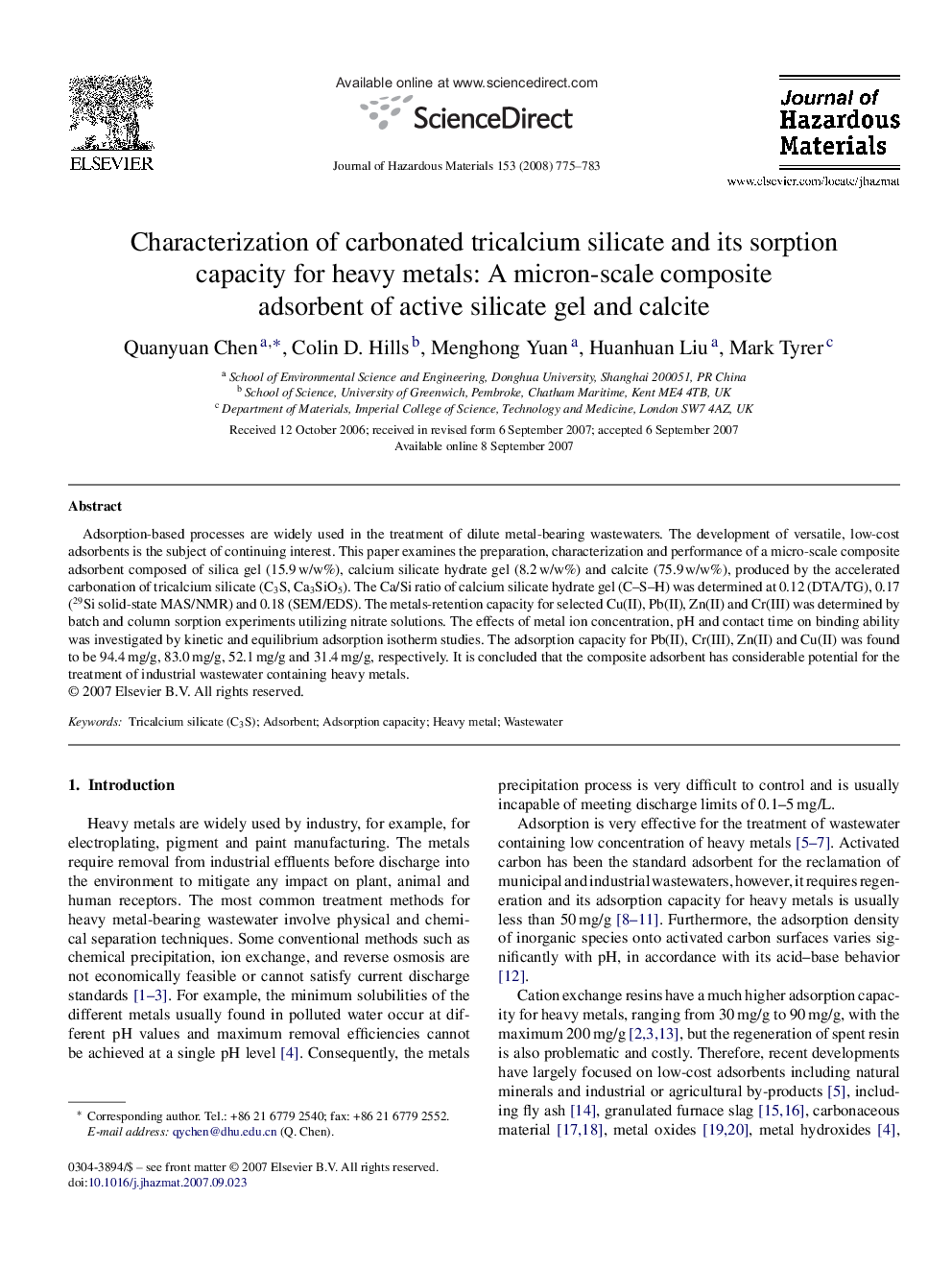| Article ID | Journal | Published Year | Pages | File Type |
|---|---|---|---|---|
| 583169 | Journal of Hazardous Materials | 2008 | 9 Pages |
Abstract
Adsorption-based processes are widely used in the treatment of dilute metal-bearing wastewaters. The development of versatile, low-cost adsorbents is the subject of continuing interest. This paper examines the preparation, characterization and performance of a micro-scale composite adsorbent composed of silica gel (15.9Â w/w%), calcium silicate hydrate gel (8.2Â w/w%) and calcite (75.9Â w/w%), produced by the accelerated carbonation of tricalcium silicate (C3S, Ca3SiO5). The Ca/Si ratio of calcium silicate hydrate gel (C-S-H) was determined at 0.12 (DTA/TG), 0.17 (29Si solid-state MAS/NMR) and 0.18 (SEM/EDS). The metals-retention capacity for selected Cu(II), Pb(II), Zn(II) and Cr(III) was determined by batch and column sorption experiments utilizing nitrate solutions. The effects of metal ion concentration, pH and contact time on binding ability was investigated by kinetic and equilibrium adsorption isotherm studies. The adsorption capacity for Pb(II), Cr(III), Zn(II) and Cu(II) was found to be 94.4Â mg/g, 83.0Â mg/g, 52.1Â mg/g and 31.4Â mg/g, respectively. It is concluded that the composite adsorbent has considerable potential for the treatment of industrial wastewater containing heavy metals.
Related Topics
Physical Sciences and Engineering
Chemical Engineering
Chemical Health and Safety
Authors
Quanyuan Chen, Colin D. Hills, Menghong Yuan, Huanhuan Liu, Mark Tyrer,
